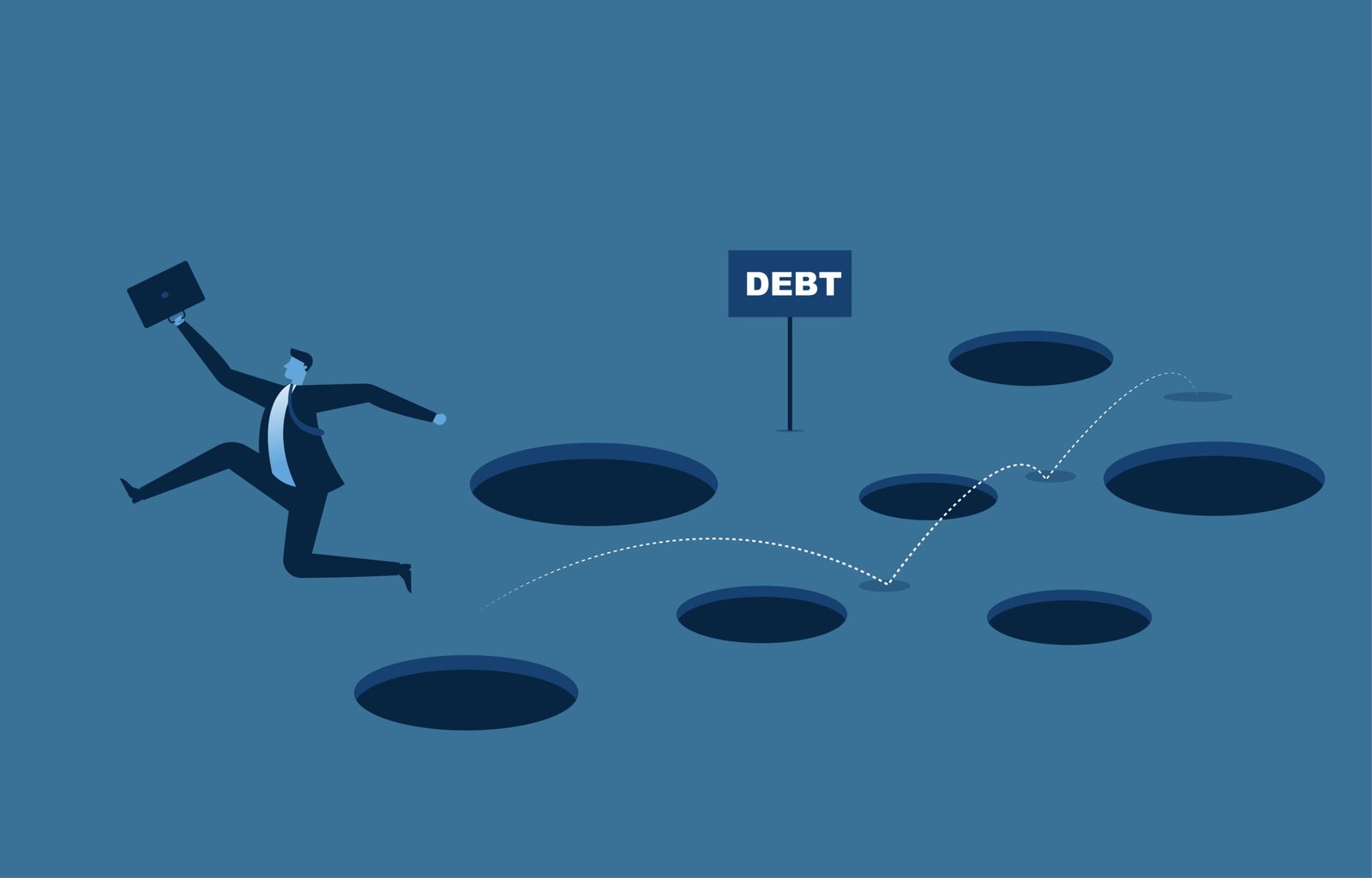If you’re struggling with multiple debts and feeling buried under high-interest rates, you might be wondering: Can you use a loan to pay off other debts? The answer is yes, and for many people, this strategy, known as debt consolidation, can be a game-changer.
Juggling several loans or credit cards at once can be overwhelming. Each debt comes with its own due date, interest rate, and minimum payment, making it easy to lose track and fall behind. Worse, high-interest debts, like credit cards, can keep you trapped in a cycle where most of your payment goes toward interest rather than paying down the principal.
This is where a debt consolidation loan can help. By taking out a single loan to pay off multiple debts, you simplify your finances, potentially lower your interest rate, and create a clear path to becoming debt-free. But is it the right move for you? Let’s take a look at how it works, when it makes sense, and what to watch out for.
What Is Debt Consolidation and How Does It Work?
Debt consolidation is the process of combining multiple debts, such as credit card balances, medical bills, or personal loans, into one new loan. Instead of keeping up with several payments each month, you’ll have just one fixed payment, often at a lower interest rate.
Here’s how it typically works:
1. You apply for a new loan (usually a personal loan, balance transfer credit card, or home equity loan).
2. If approved, the lender pays off your existing debts, either by sending funds directly to your creditors or depositing the money into your account so you can pay them off yourself.
3. You then repay the new loan in fixed monthly instalments over a set term (usually 2 to 7 years).
PEOPLE ALSO READ
Ways to Spot Personal Loan Scams and Protect Your Finances
What is The Best Type of Loan for a Small Business?
How Does Identity Theft Affect Loans?
Steps to Improve Credit Score Before Applying for a Loan
What Is a Fake Loan Offer and How to Identify It

Why Consider a Debt Consolidation Loan?
Lower Interest Rates: If you qualify for a loan with a lower APR than your current debts, you’ll save money over time.
Simplified Payments: Managing one payment instead of multiple due dates reduces stress and minimises the risk of missed payments.
Faster Debt Payoff: With a structured repayment plan, you may pay off debt sooner than if you were making minimum payments on multiple accounts.
However, debt consolidation isn’t a magic fix. If you don’t address the spending habits that got you into debt in the first place, you could end up in a worse financial situation.
When Should You Use a Personal Loan to Pay Off Debt?
A personal loan is one of the most common ways to consolidate debt, but it’s not always the best choice for everyone. Here’s when it makes sense:
1. You Have High-Interest Debts (Like Credit Cards)
Credit cards often come with APRs of 20% or higher. If you’re carrying a balance, most of your payment goes toward interest rather than reducing your debt. A personal loan with a lower fixed rate can help you save money and pay off debt faster.
2. You Want a Structured Repayment Plan
Unlike credit cards (which have no set payoff date), personal loans come with a fixed term (e.g., 3 or 5 years). This forces discipline; you’ll know exactly when you’ll be debt-free if you stick to the plan.
3. You Have Good or Excellent Credit
The best personal loan rates go to borrowers with credit scores of 670 or higher. If your score is in the good-to-excellent range (700+), you’ll likely qualify for the most competitive rates.
4. You’re Committed to Changing Spending Habits
Consolidating debt only works if you stop accumulating new debt. If you pay off credit cards with a loan and then max them out again, you’ll be in deeper financial trouble.
When It Might NOT Be the Right Move
• If your credit score is too low to qualify for a better rate than your current debts.
• If you can’t afford the monthly payment, consolidating won’t help if the new loan stretches your budget too thin.
• If you’re considering risky options like payday loans or high-fee debt relief programs.
Pros and Cons of Using a Loan to Pay Off Debt
Before taking out a consolidation loan, weigh the advantages and potential drawbacks.
Pros
1. Lower interest rates mean more of your payment goes toward the principal.
2. One monthly payment simplifies budgeting.
3. Fixed repayment term gives a clear debt-free date.
4. May improve credit score by reducing credit card utilisation.
Cons
1. Requires good credit for the best rates (bad credit may lead to higher APRs).
2. Some loans have origination fees (typically 1% to 8% of the loan amount).
3. Risk of accumulating new debt if spending habits don’t change.
4. Possible prepayment penalties (some lenders charge fees for paying off early).
READ MORE
Platforms To Get Instant Loan In Nigeria
What Is the Difference Between Secured and Unsecured Loans?
Can You Get a Personal Loan With No Credit History?
Why Do Loan Applications Get Rejected?
Conclusion
So, can you use a loan to pay off other debts? Absolutely, but it’s not a one-size-fits-all solution. If you’re struggling with high-interest debts and can qualify for a lower rate, consolidating with a personal loan can save money and simplify repayment. However, success depends on financial discipline. Without changing the habits that led to debt, consolidation could just be a temporary fix.
